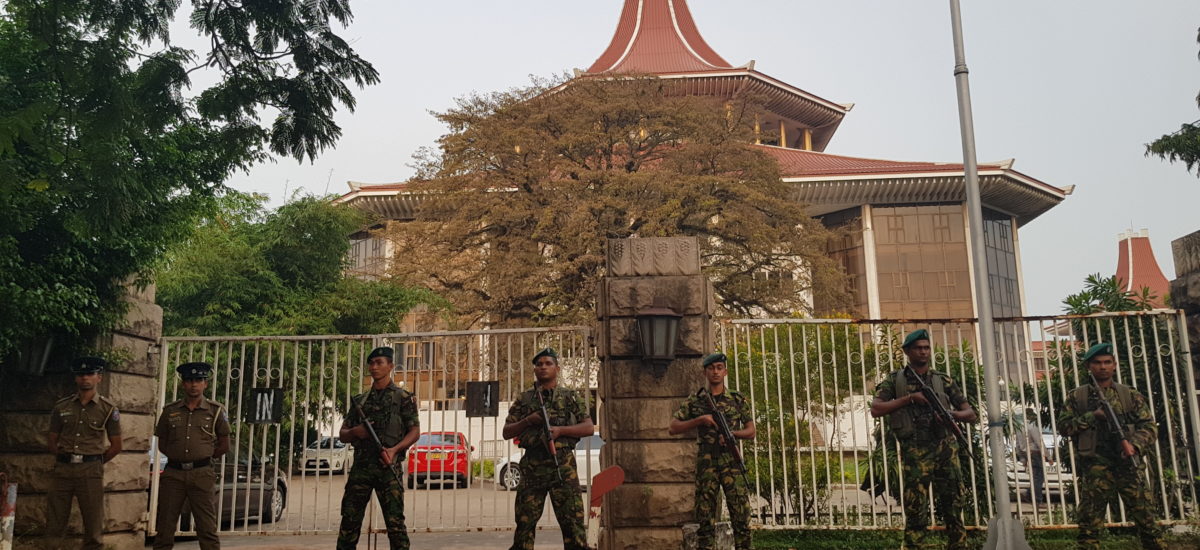Featured image by Amalini De Sayrah
On December 13, there was heightened police presence outside the Supreme Court as the public awaited news on petitions challenging the Presidential proclamation on the dissolution of Parliament.
Sri Lanka has remained mired in political uncertainty since October 26, when President Sirisena withdrew his party, the SLFP, from the coalition government and appointed SLPP MP Mahinda Rajapaksa as Prime Minister, a move many have called unconstitutional.
In the immediate aftermath of the Supreme Court verdict, Groundviews spoke to attorneys-at-law and activists on reactions to the judgment.
Attorney-At-Law Dinesha Samaratne said that the Supreme Court decision should be welcomed and celebrated.
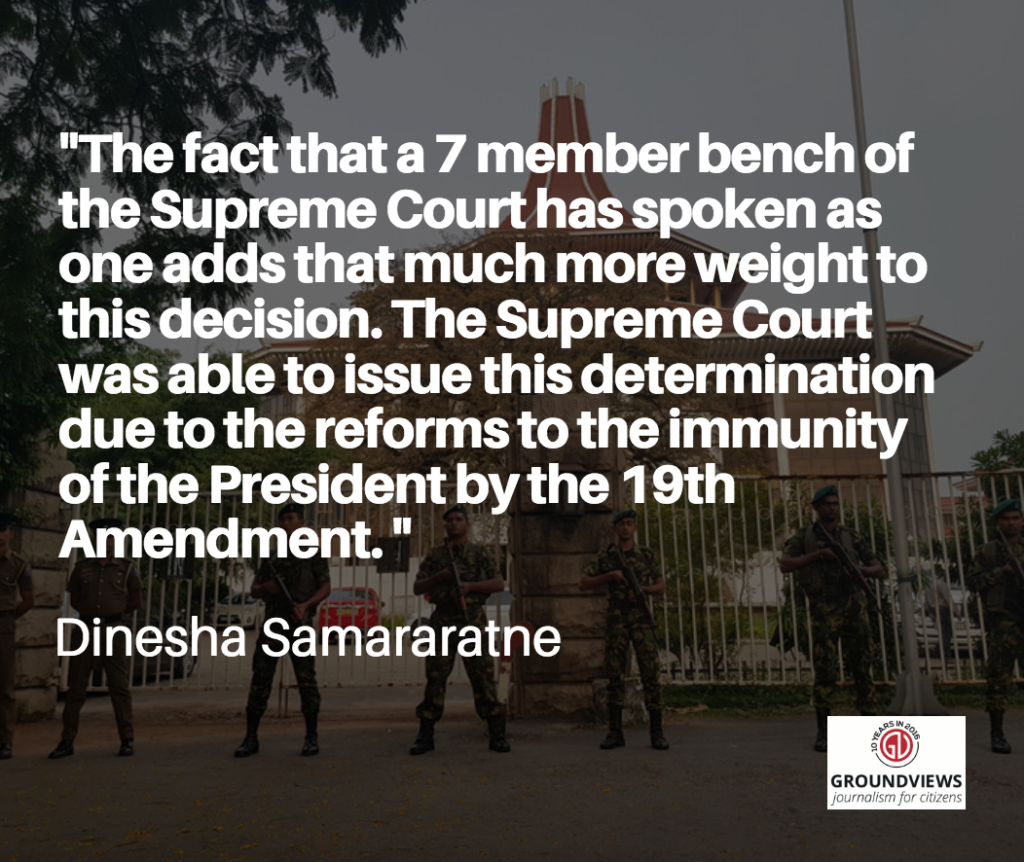
“The Parliament stands and its declaration of no-confidence in MP Rajapakse (through two separate motions) and its declaration of confidence in Prime Minister Wickremesinghe clarifies that Ranil Wickremesinghe continues to enjoy the confidence of a majority in Parliament. The only way forward is for the President to rescind his purported appointment of MP Rajapakse as Prime Minister and his purported appointment of a Cabinet of Ministers. The status quo prior to 26th October has to be restored,” Samaratne added.
“I think the verdict is a fantastic day for justice and rule of law,” Attorney-At-Law Deanne Uyangoda said.
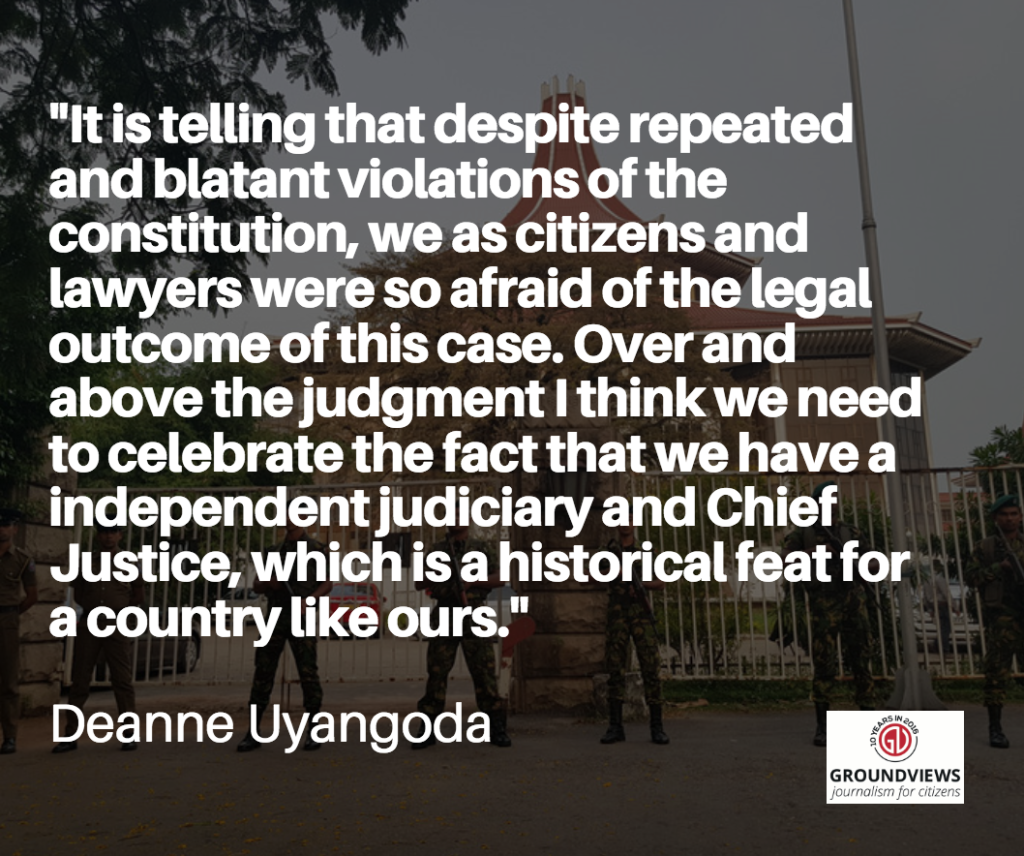
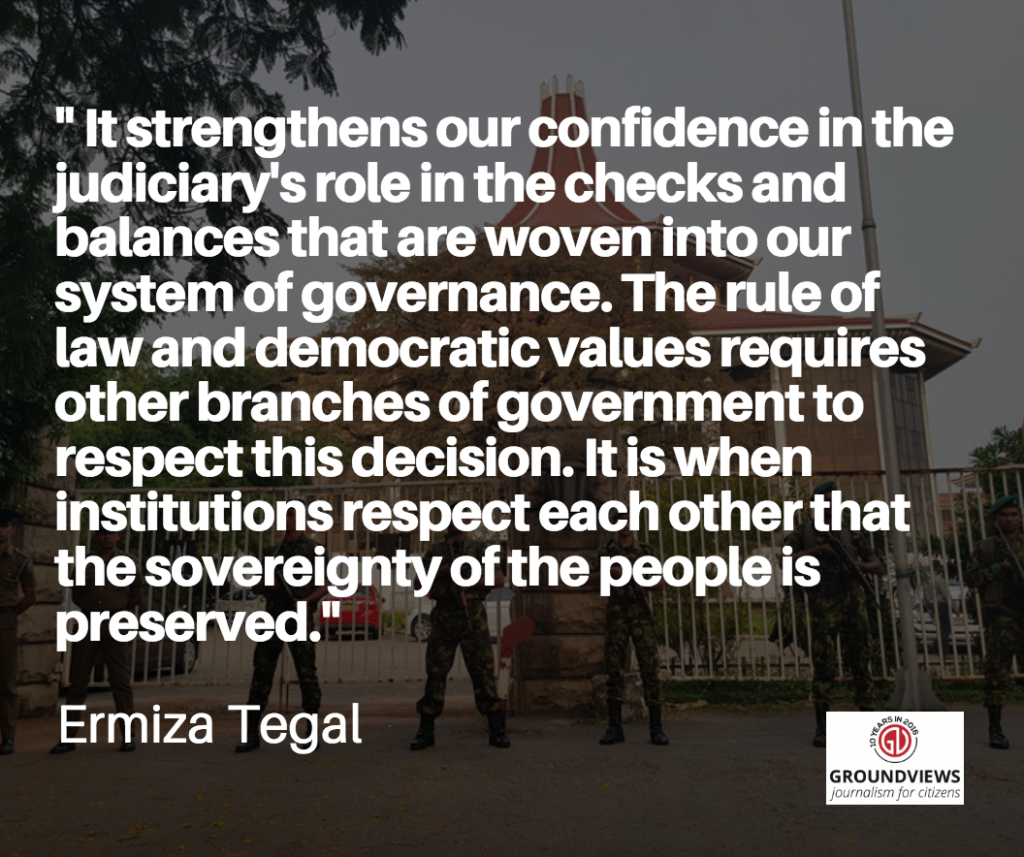
Calling the judgment “historic” Attorney-At-Law J C Weliamuna noted that the Supreme Court had discharged their primary duty of defending the Constitution. While the judgment was not in the public domain at the time, Weliamuna noted that there was a need to reflect on the distorted governance practised by the President since October 26.
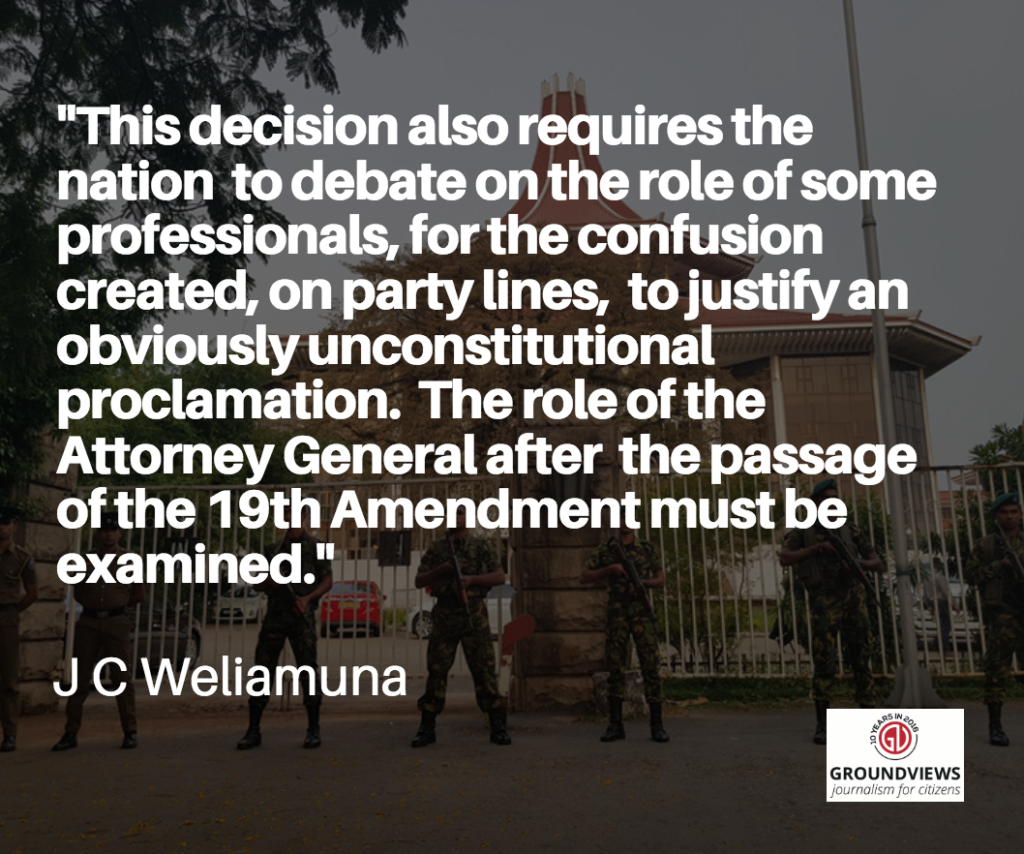
Speaking before the release of the Supreme Court judgment, Attorney-At-Law Luwie Ganeshathasan said that the decision re-affirmed that Sri Lankan citizens had a right to be governed according to the Constitution as well as a right to participate in elections according to established procedures of the law, as opposed to on the whim of one individual.
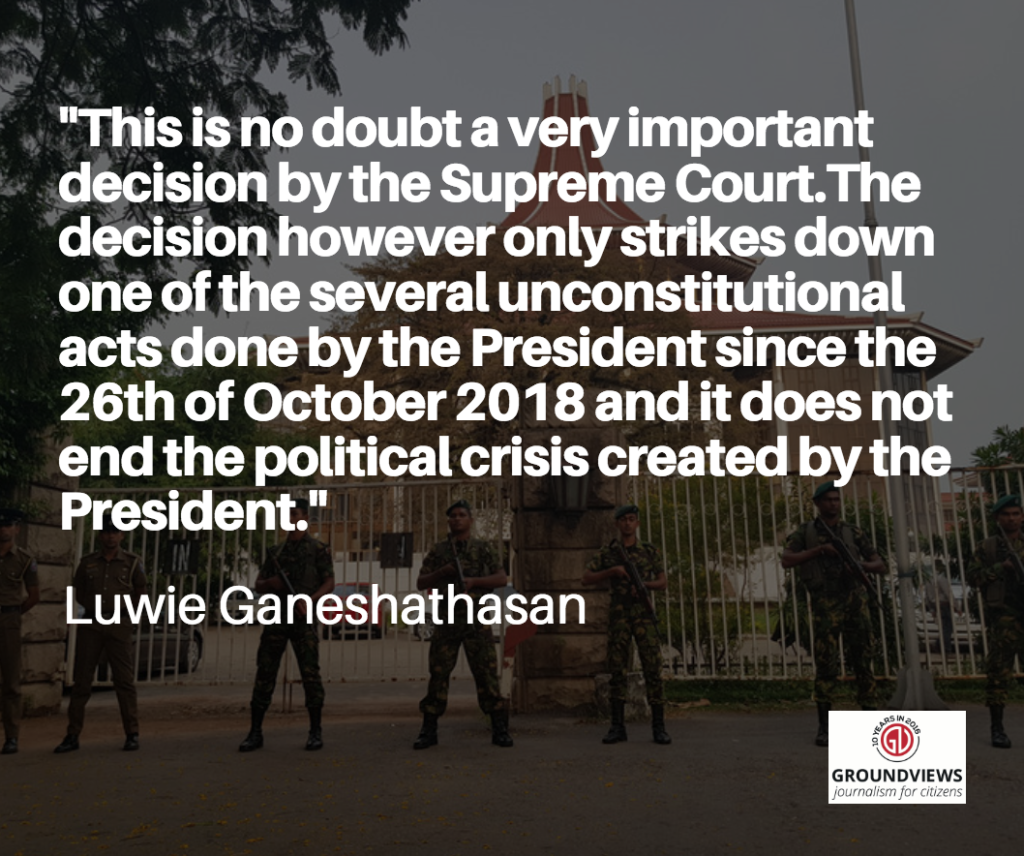
Meanwhile, Attorney-At-Law Sabra Zahid said that it was evident from conversations that many were counting on the judiciary in order to restore balance.
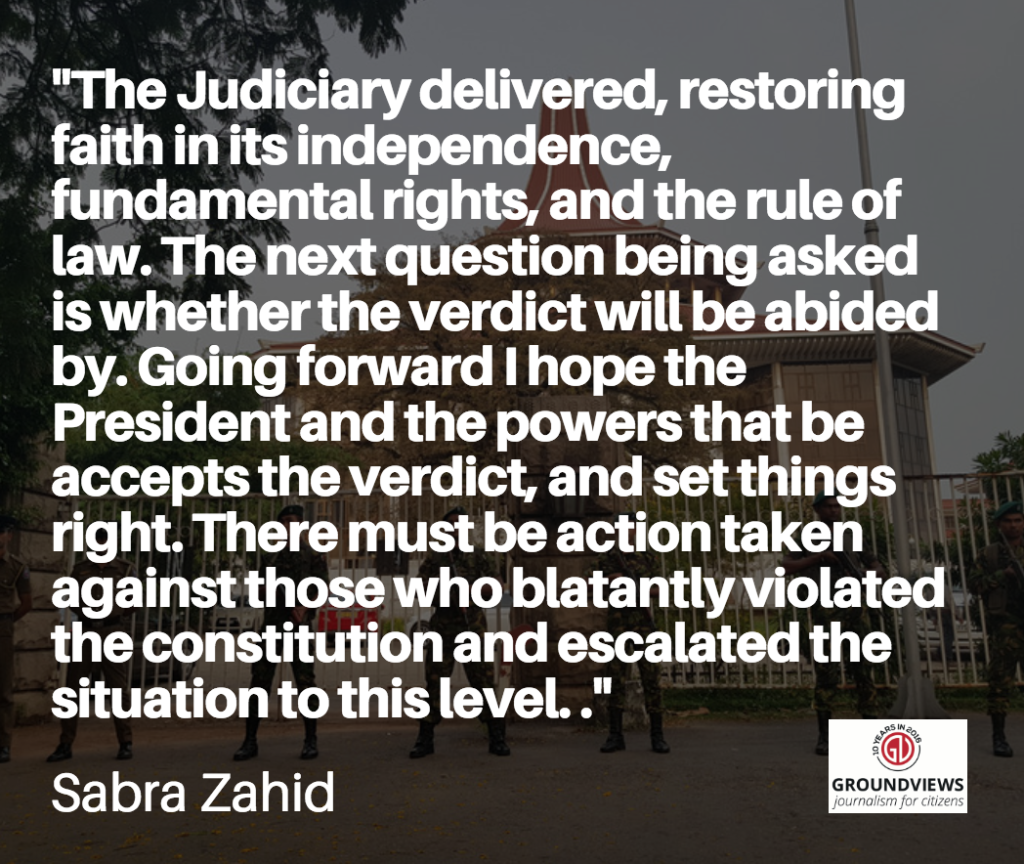
Activist K Aingkaran agreed that there was a need to abolish Executive Presidency and further strengthen democratic institutions. “The struggle for democracy and political reforms has gained momentum. We need to keep pushing,” he said.
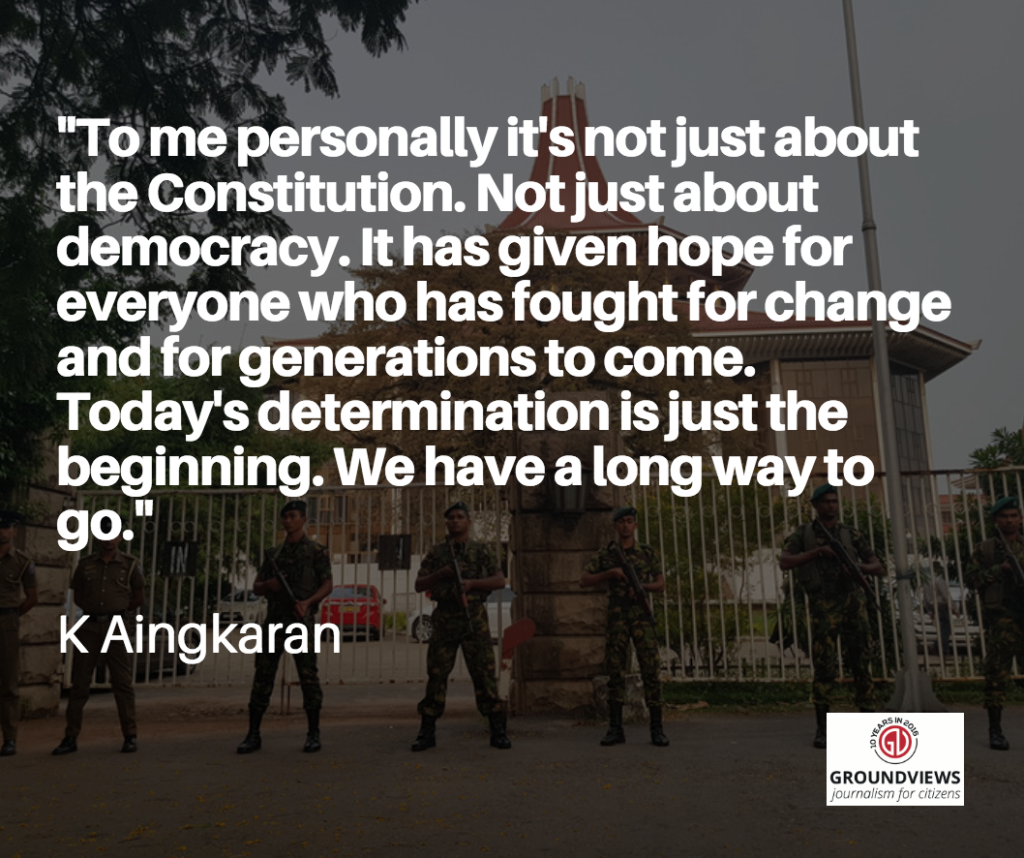
Executive Director of Transparency International Asoka Obeysekere said that the judgment should not be seen as a win for any political party. “This is a win for democracy,” he said.
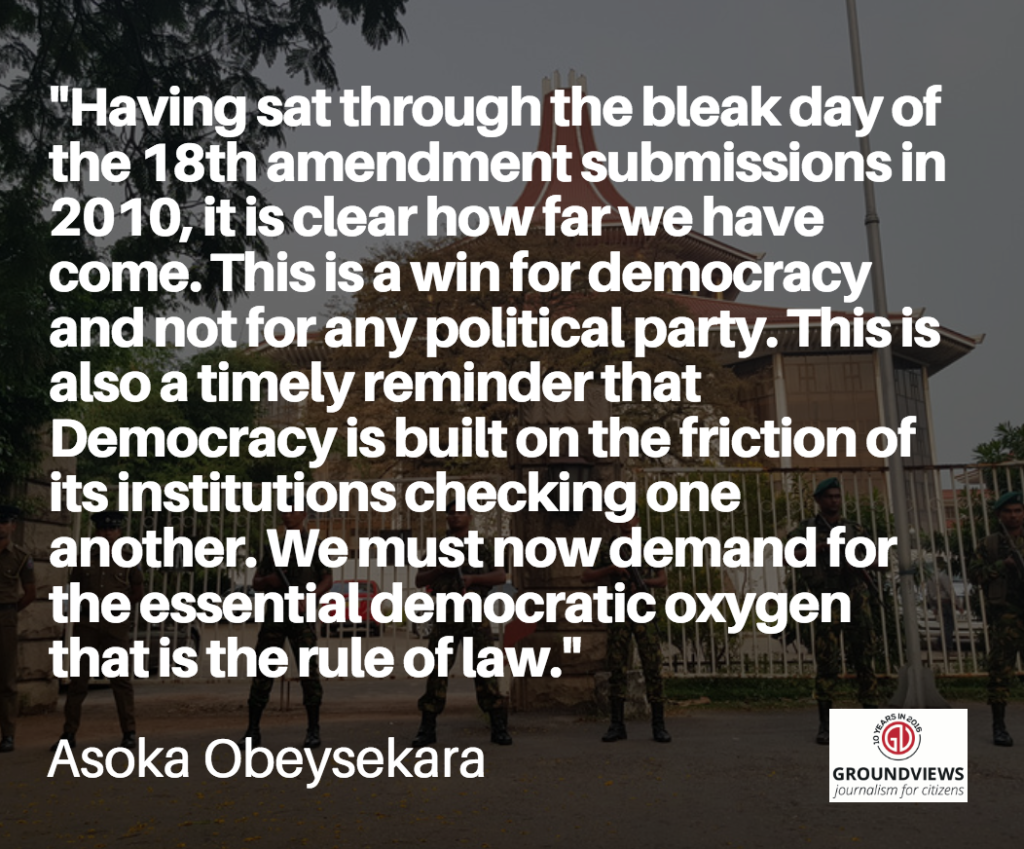
Attorney-At-Law Gehan Gunatilleke said the Supreme Court’s ruling was “nothing short of a watershed event in Sri Lanka’s constitutional history.” Gunatilleke said that the ruling demonstrated how important it was to guarantee separation of powers in any governance structure.
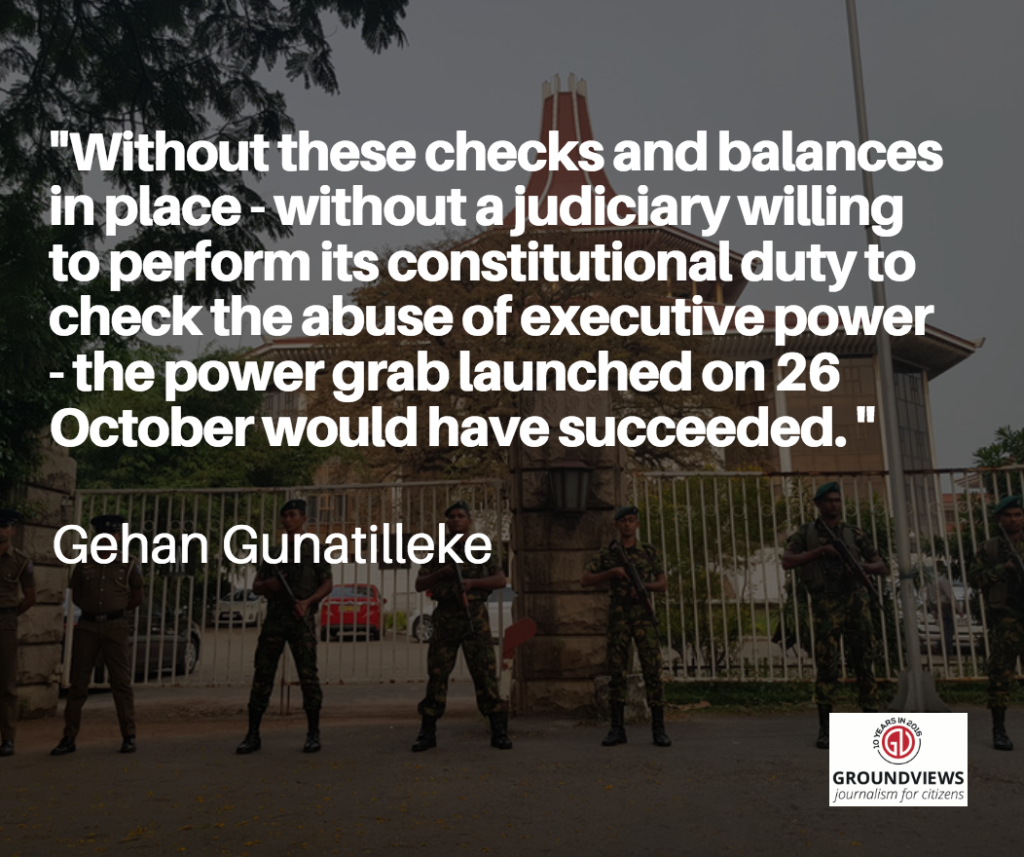
The ruling also demonstrated that Sri Lanka’s institutional culture has evolved during the past three and a half years. The shift is subtle, and is yet to reach a level where it can be called a genuine ‘transformation’, as Gunatilleke noted. Yet, the reluctance or inability of the Yahapalanaya government to concentrate power has enabled institutions such as the judiciary to discover its independence over time. The coup would have succeeded had it not been for this vital discovery of judicial independence, he added.
Shortly after these comments were made, the Supreme Court judgment was made public, accessible here.
The political impasse, however, continues. Members of the SLFP were instructed not to speak to the media following the judgment, while supporters of the SLPP who said they did not agree with the judgment have deleted their tweets. President Sirisena himself has repeatedly said that he would not appoint Wickremesinghe as Prime Minister “in his lifetime”. However, the judgment leaves Sri Lanka without a budget for 2019, increasing the pressure for a resolution to the crisis.
Read more content about the current political situation here.

